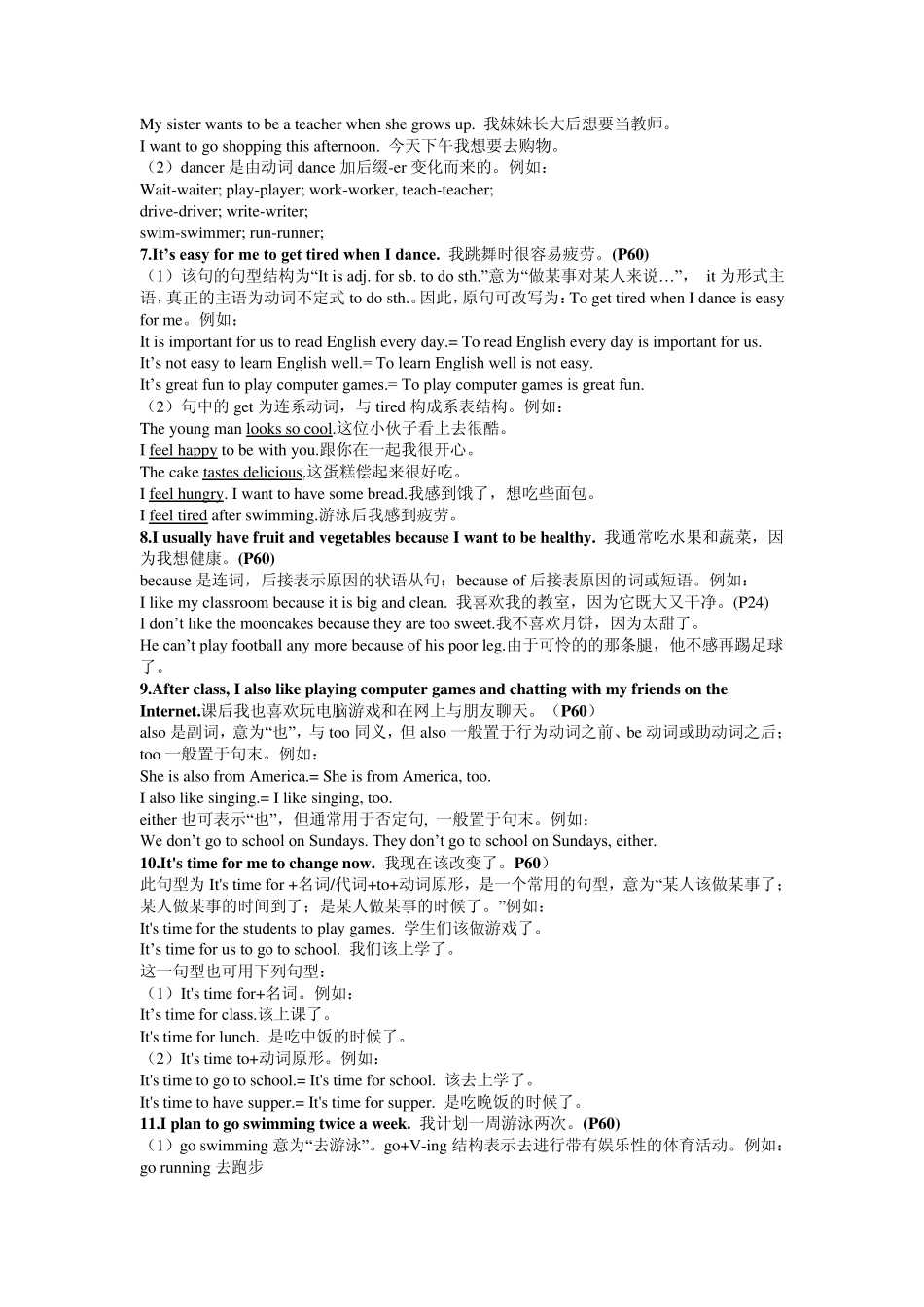译牛7A Unit 4 重点难点讲解 1.Let’s have a hamburger. 让我们吃个汉堡包吧。(P58) “Let’s”是“Let us”的缩写形式,其后接动词原形(即省去to 的动词不定式)。以“Let’s”开头的句子为祈使句。例如: Let’s go fishing.让我们去钓鱼吧。 Let’s play badminton. 让我们打羽毛球吧。 2.I need a lot of energy. 我需要许多能量。(P58) (1)句中的need 作动词,意为“需要”。例如: Do you need my help?你需要帮助吗? I don’t need any money.我不需要钱。 need 还可作情态动词,常用于否定句。例如: ---Must I finish the work today?---No, you needn’t. — — 我必须今天完成这项任务吗?— — 不必。 (2)a lot of = lots of 意为“许多、大量的”,相当于many或 much。例如: He has a lot of friends here. = He has many friends here.他这儿有许多朋友。 Her parents have a lot of money. = Her parents have much money.她父母亲很有钱。 3.You never exercise. 你从来不锻炼。(P58) (1) never 是副词,意为“永不,从不,决不,从未,一点也不”。通常置于行为动词之前、be动词或助动词之后。例如: We never go to school on Sundays.我们星期天从来不上学。 I am never late for work.我上班从不迟到。 I will never forget your birthday.我决不忘记你的生日。 (2) 句中的exercise 作动词,意为“锻炼”。例如: My father exercises in the park every morning.我父亲每天早晨在公园锻炼。 exercise 还可作名词,意为“锻炼”。例如: We need enough exercise every day.我们需要每天锻炼。 4.I walk to my bowl many times a day. 我一天跑向我的饭碗好多次。(P58) (1)句中的walk 为不及物动词,walk to 相当于go to … on foot,意为“步行去… … ”例如: She walks to school every day.她每天步行上学。 walk 也可作及物动词,意为“带… … 散步,带… … 遛弯”。例如: She walks him every day. 她每天带他散步。(P28) walk 还可作名词,意为“散步,溜达”。例如: I take my dog for a walk every day.我每天溜狗。(P14) He often goes for a walk after supper.他经常晚饭后去散步。 (2) times 意为...


